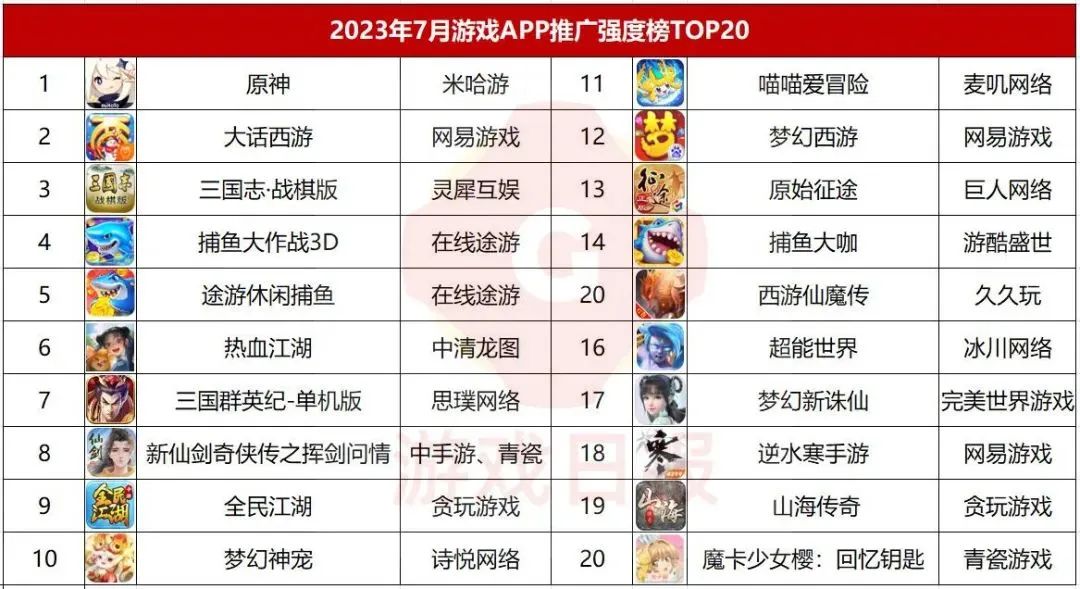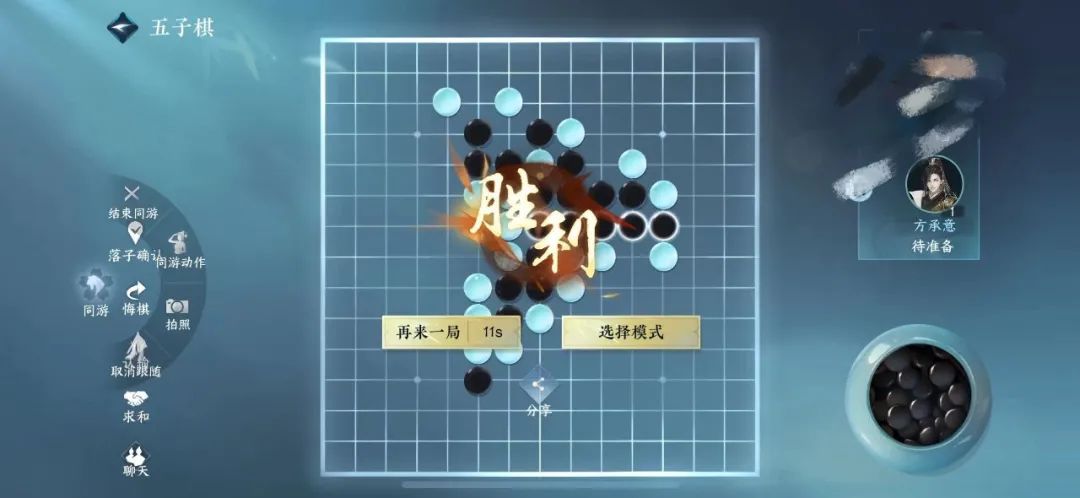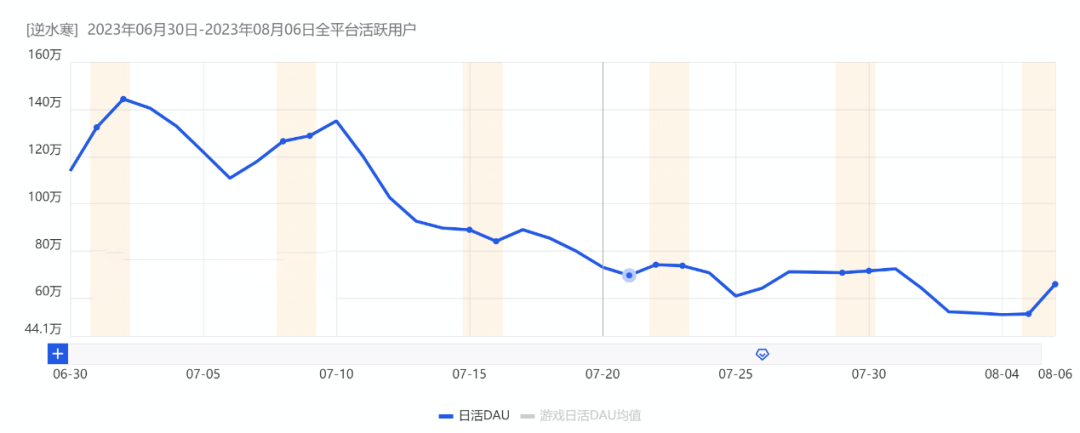Source: Silicon Research Lab

Image Source: Generated by Wujie AI
The gaming industry is currently experiencing a period of great change.
On one hand, there is a continuous stream of news about layoffs and contraction, while on the other hand, there is the "singularity moment" brought about by generative AI.
In fact, AI is not a new thing in the gaming industry. In the early stages of game development, as early as the previous century, Atari's "Pong" already included computer-controlled opponents challenging players, although still following the scripts of game planners, it already contained the shadow of AI bots and intelligent NPCs that are hotly debated in the gaming industry today.
The gaming industry is embracing AIGC (AI in Game Creation) at a faster pace and with a more positive attitude. According to a survey report by well-known investment firm a16z on 243 game studios, 87% of the studios are currently using AI. Tianfeng Securities also provided similar evidence in a game industry survey, with over half of the surveyed subjects stating that AI has been applied to game project development.
When it comes to the combination of AIGC and games, NetEase (9999.HK) is a company that cannot be ignored. NetEase CEO Ding Lei once said, "We must firmly grasp this once-in-a-century opportunity of AI." In a recent financial performance meeting, NetEase stated that it has invested over 12 billion yuan in key technologies such as self-developed large AI models in the first three quarters.
The mobile game "Justice" that carries NetEase's ambition for the next "blockbuster game" also highlights "the world's first open-world game with large-scale AI gameplay" at its launch.
As a "thousand-year runner-up" in the gaming industry, with "wealth and power" Tencent in the front and the "Shanghai Game Four Dragons" including miHoYo in the back, for NetEase Games, can it take advantage of AI to make a surprise move this time?
In this article, we will address three core questions:
1. How successful is the AI integration in the mobile game "Justice"?
2. What is the logic behind NetEase Games' AI strategy?
3. Can NetEase Games make a comeback with AI?
01
NetEase Games takes the lead in AIGC,
Investing heavily in "Justice"
"NetEase's big AI investment was basically first put into the mobile game 'Justice,' which can be seen from the large-scale material investment in the early stage."
Orange is a game planner. According to her observations, since the public beta of the mobile game "Justice" at the end of June, compared to the past, "Justice" has appeared very "domineering" in the early stage of mobile game material investment.
According to the July game buying list compiled by "Game Daily," the mobile game "Justice" entered the top 20 for the first time. In Orange's view, specifically in terms of material investment, the mobile game "Justice" stands out in character appearance and martial arts aesthetics, especially in intelligent face customization and AI teammates. "Of course, this is also related to the positioning of 'Justice' itself. 'Justice' initially told players that it does not follow the traditional MMO single path, and it combines MMO and martial arts open world."

"Silicon Research Lab" observed that from the perspectives of gameplay and promotion, the "AI concentration" of the mobile game "Justice" is extremely high.
Firstly, in terms of interactive gameplay, NetEase Games has applied AI technology to character customization, combat, and storyline, allowing users to generate their desired character appearance by simply entering text and to match AI opponents for dungeon battles. At the same time, players can also interact with intelligent NPCs, also known as the game version of "GPT."
"Silicon Research Lab" separately interviewed some new and old players about their user experience. AI does play a role in attracting players or optimizing the experience, but in the long run, it depends on NetEase Games' operation and strategy.
Xiaoya is a new player who was attracted to the "Justice" mobile game by the face customization feature. She had previously played mostly female-oriented mobile games and valued the appearance of the game. "I was attracted by the face customization images online, but because I hadn't played this type of game before, I was really confused by many tasks later on. But it got better after finding a mentor." The "mentor system" mentioned by Xiaoya is a new experience optimized by "Justice" for retaining new players in subsequent version updates.
In addition to face customization, the interaction with intelligent NPCs in the game is also one of the selling points of the "Justice" mobile game. Aran, an old player of "Justice," believes that interacting with intelligent NPCs is really fun. She told "Silicon Research Lab" that each NPC has its own personality, and during interactive conversations, players can adjust the tone of speech and use voice input. Through continuous communication, they can also develop social relationships. "The main feeling is that with the integration of AI, the freedom is greater, and the desire for exploration is stronger."

Aran playing chess with the intelligent NPC "Fang Chengyi"
Image Source: Interviewee
Whether it's AI face customization or intelligent NPCs, fundamentally, they provide diverse gameplay through AI, making the game more immersive and interesting for players.

Official storyline written by players and intelligent NPCs
Image Source: "Justice" mobile game
What truly made the "Justice" mobile game stand out was not just AI, but a series of high-profile promotional activities.
From the early stages of promotion, the "Justice" mobile game has been benchmarking "Genshin Impact," raising the banner of "making MMO great again," and a series of crazy marketing strategies. On one hand, from a business model perspective, it does not follow the traditional MMO "selling values" route, and it has sparked a price war in the industry with a relatively low first recharge threshold… From a promotional perspective, it is positioned as a conspicuous package that allows players to do as they please from the start.
The reason NetEase chose to see the "Justice" mobile game as the culmination of AI and game integration is not difficult to understand. On one hand, from the positioning of the "Justice" mobile game, it is a strategic product within NetEase Games, focusing resources and making a big effort, making it easier to stand out and become a blockbuster.
On the other hand, by leveraging AI to optimize the experience, it also allows for more innovative and diverse gameplay, attracting more users to generate more interactions and accumulate more data assets, which in turn benefits platform development, making it easier to highlight the flywheel effect of AIGC "data-model-experience."
According to an interview with the producer of the "Justice" mobile game, Ting Yu, by "Game Grape" in August of the previous year, objectively speaking, the AI-integrated "Justice" mobile game has achieved remarkable results. Ting Yu revealed that in the "Justice" mobile game, over 70% of players had never played an MMO before. Ding Lei mentioned in NetEase's financial report conference call that among the players of the "Justice" mobile game, one-third had not played NetEase games before, and these users mainly came from other large-scale games in the market.
DataEye Research Institute previously found that the daily active users (DAU) of most immortal and martial arts MMO products were impacted by the launch of the "Justice" mobile game, with the highest drop reaching nearly 30%.

It can be said that the integration of AIGC and the mobile game "Justice" has brought NetEase Games a brief victory.
02
NetEase Games' "Three-Step" AI Strategy
The mobile game "Justice" is just the end product of NetEase Games' AI strategy. Looking at the current trend of game companies embracing AIGC, NetEase Games' AI strategy is not a new story.
The implementation of AIGC in game scenarios mainly has two core themes: first, in the B-end game production, using AI tools to reduce costs and increase efficiency in various aspects such as planning, art, programming, and operations. Second, in the C-end user experience, further meeting the needs of players, providing immersive experiences based on role-playing in an open world. For example, in content supply, intelligent NPCs improve player interaction; in art experience, using AI painting to meet player needs, and so on.
In comparison to NetEase's practice, it is also on these two core themes that AIGC is implemented in game scenarios through the "three-step" approach of platformization, self-research, and human-machine interaction.
The first step is platformization. Most game companies, including NetEase, have early on established AI platform departments to collect data and standardize platforms and gameplay templates to implement AIGC. For example, NetEase established NetEase Fuxi and NetEase Interactive Entertainment AI Lab in 2017.
The so-called AI platform department, for NetEase Games, serves two main purposes. First, it connects the front and back ends, using AIGC to improve efficiency and reduce costs in the game development process. Second, the platform is essentially an organization for producing standardized and reusable products. Therefore, NetEase Fuxi and Interactive Entertainment AI Lab have integrated game frameworks, algorithms, and materials into a standardized "building block" to implement AIGC in different game scenarios.
In fact, related technologies for the "Justice" mobile game have already formed reusable solutions. For example, in the production of mouth shapes and facial expressions in animation, the voice-driven mouth animation technology from the Interactive Entertainment AI Lab has been extensively tested in games such as "Fantasy Westward Journey 3D," "Traveler of Time and Space," and "Shen Du Ye Xing Lu."
The second step is self-research. Currently, domestic game companies' layouts for AIGC can mainly be divided into three modes: self-research, investment, and cooperation. The "self-research" mode includes companies like NetEase, Tencent, and miHoYo. The "investment" mode includes companies like Lilith, which invests in startups such as Qiyuan World and Nianli Technology. The "cooperation" mode involves leveraging the capabilities of other AI large model companies, such as the collaboration between Zhongshouyou and Baidu's Wenxin Yiyuan.
These three modes are not superior or inferior. The self-research mode requires a large investment and relies on first-mover advantage, while also solving copyright issues. The reason NetEase invests heavily in self-research is essentially because gaming is a cash cow business. In the first half of this year, NetEase Fuxi released large text models "Yuyan," "Yuzhi," and "Danqing," and also launched the AI drawing platform "Danqing Yue" to compete with Midjourney.
The third step is "human-machine collaboration." NetEase has repeatedly explained its AI strategy to seek not only the implementation of AI in game scenarios but also to explore larger boundaries in game scenarios from a group perspective. For example, under the concept of "human-machine collaboration," NetEase has delved into B-end industrial scenarios, such as the story of unmanned loaders.
It can be said that the first step of "platformization" and the second step of "self-research" stem from NetEase's first-mover advantage as a leading game company, helping it to tell new stories in the early stages of game AIGC development. The third step of "human-machine collaboration" is the ambition of NetEase's AI strategy from a group perspective.
However, while the ideal is ambitious, the reality is that NetEase Games' seemingly clear AI strategy still faces many visible challenges.
03
Can the "Thousand-Year Runner-Up" Make a Comeback with AI?
In fact, among the many game giants, NetEase's early use of technology and the grand storytelling of AI in the "Justice" mobile game reflect its growth anxiety.
Looking back at the changes in the direction of the domestic game market in recent years, "transformation" has almost become the consensus among companies, large and small.
From a macro market perspective, despite surviving the "game license shortage," the anxiety has not gone away. The "China Game Industry Report" shows that last year, domestic market revenue and user scale experienced a decrease for the first time in nearly 10 years, and demand recovery will take some time.
From a micro-product perspective, in the crowded category race, with scarce blockbusters, the domestic market is in a state of survival of the fittest, and incremental growth is either hidden in overseas markets or in some less noticed tracks, such as mini-games and cloud gaming.
Pei Pei, founder of the Internet Weirdo Group, who has been studying the game industry for many years, believes that almost all major game companies are struggling to transform to adapt to the "arms race" of the new era, with continuously expanding project scales.
Tencent has been in a new product drought since the second half of 2022 and has now released the party game "Yuan Meng Zhi Xing." NetEase's outstanding performance in products is mainly "Eggy Party" and the "Justice" mobile game. If we carefully analyze the success of these two games, we can see the change in NetEase Games' strategy: a high-profile promotion and a shift from emphasizing detailed gameplay to emphasizing social interaction and creativity.
In other words, AIGC actually provides a new direction for domestic game companies facing anxiety. On one hand, it can indeed bring tangible cost reductions and efficiency improvements. Hu Zhipeng, Senior Vice President of NetEase Group and head of NetEase Thunder Fire Games Business Group, revealed in an interview that at NetEase Thunder Fire, designers are already using AI large models to design character costumes and generate icons, resulting in a 40% cost reduction. On the other hand, in terms of player experience, AI-integrated products themselves also provide new entry points for large companies like NetEase in incremental businesses such as overseas markets.
Taking NetEase Games' overseas version of "Eggy Party," called "Eggy Party," launched in early September as an example, the download volume has remained high in the Southeast Asian market. As of the end of October, according to Sensor Tower, the overseas download volume of "Eggy Party" has exceeded 10 million. The UGC content ecosystem of "Eggy Party" actually uses AI functionality in map creation.
However, whether NetEase Games can make a comeback with AI still remains a big question mark.
One issue is the wavering strategic positioning of NetEase. As mentioned earlier, game AI is not NetEase's strategy but rather its most direct tactic. NetEase wants to migrate AI from C-end games to B-end industrial and industrial scenarios. It has gradually extended its capabilities to new businesses such as engineering robots and data crowdsourcing.
The spillover value brought by game AI cannot be denied, and there have been precedents in fields such as transportation and healthcare. But for NetEase, the more challenging industrial scenarios cannot be approached with the same tactics or product thinking as in the C-end, and it must build a healthier customer structure and seek stable profit. However, from the perspective of the difficult development of NetEase's B-end business in recent years, this path is not easy.
Another issue is the more intense competitive environment in the areas where games excel. Most domestic leading game companies have established their own AI platforms, such as Tencent's CDG AI Lab and Tencent IEG Cros, and Tencent's game studios such as Timi and Photon also have their own technology centers. In the "Shanghai Game Four Dragons," miHoYo's Nishang Technology Research Institute and Yostar's New Moon Technology Research Institute use technology platforms to accumulate game assets, which has become a basic operation for leading companies.

In the landing scene, from game production to player experience, layouts have been made in almost all aspects such as AI bots, intelligent NPCs, AI painting, etc. In 2021, Tencent AI Lab and Honor of Kings launched the strategic collaborative AI "King's Enlightenment" and the AI open research platform "Enlightenment." In addition, in the production process, there is an AI development platform called Game AIR that can be used to create NPCs and is compatible with different categories such as MOBA, card games, and shooting games.
Currently, the application of game AI is still in its early stages. Orange believes that all game AI should return to the experience. She used "intelligent NPCs" as an example, stating that everyone hopes to present scenes like "Westworld," but turning a game from a closed box into a treasure chest, approaching a truly open world, is still a long way off. "The experience from 0 to 90 may be simple, but truly from 90 to 100, every step is difficult, and every optimization is hard work."
Hu Zhipeng also candidly admitted in an interview, "We are more focused on the game industry's ability to deploy quickly and cost-effectively. Passing means it can really be used, but can you say it's perfect? There is definitely still a long way to go."
When discussing the game's entry into industrialization through AI empowerment, one easily overlooked point is that behind the industrialization of games is the industrialization of content and IP. The essence of games is to occupy more of the player's time with fun and immersive interactive experiences, and this has never changed.
For NetEase Games, the AI experience brought by the "Justice" mobile game is indeed a good start, but how to better reach the open world in the hearts of game players, NetEase still needs to provide more answers.
(Orange, Xiaoya, and Aran are all pseudonyms)
Reference materials:
1. TF Securities: "Outlook for AI Application in the Game Industry"
2. Jingcore: "Different Strategies for Game Companies Embracing AIGC, Reducing Costs is the Result, Not the Cause" "Revolution in Game Technology, Tencent, NetEase, and miHoYo Embrace the AIGC Era"
3. Pacific Securities: "Special Topic on the Media and Internet Industry—Progress of Overseas AIGC Application in the Game Sector"
4. New Sound Pro: "How NetEase Uses AI to Transform Games"
5. DataEye: "Justice" iOS 25.8 million on the first day: Hype or Breakthrough? MMO Revival?
6. Internet Weirdo Group: "Why Did ByteDance Abandon the Game Business?"
7. Game Grape: "Oh No! Did NetEase Surround Two Categories with One Product?"
免责声明:本文章仅代表作者个人观点,不代表本平台的立场和观点。本文章仅供信息分享,不构成对任何人的任何投资建议。用户与作者之间的任何争议,与本平台无关。如网页中刊载的文章或图片涉及侵权,请提供相关的权利证明和身份证明发送邮件到support@aicoin.com,本平台相关工作人员将会进行核查。




